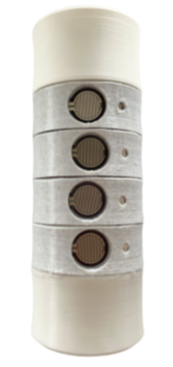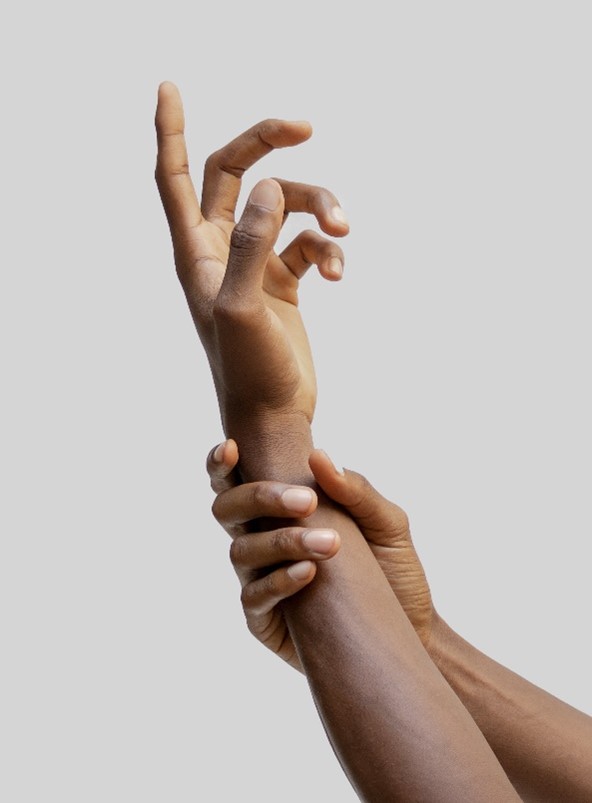Stroke is one of the leading causes of disability worldwide, occurring in more than 10 million cases every year. Furthermore, around 80% of stroke survivors suffer from some degree of motor impairment in their upper limbs, making them unable to perform daily living activities in the long term. In this regard, several studies have demonstrated a correlation between handgrip strength and a deterioration in cognitive performance of individuals. However, most of the stroke rehabilitation strategies already being marketed have been designed to focus either on motor or cognitive neurorehabilitation, so that none of them address both types simultaneously.
To combine both approaches, researchers from the Francisco de Vitoria University (UFV) and the Nebrija University have developed Amber, a portable device which facilitates rehabilitation of both motor function and cognitive abilities while tracking the patient progress.
Amber is a portable device designed with the objective of facilitating the training and evaluation processes regarding hand motor function and cognitive abilities. Said device consists of four individual modules adjustable to different hand sizes and finger lengths which can be used with both hands indistinctly. With this device, patients can perform three different exercises to assess hand and finger strength, coordination and reaction time and memory in patients. Amber can be operated in two modes: training and evaluation. Moreover, it is linked to a website that serves both as a controller for the device and a platform to access the recorded assessment data. These data can be easily accessed by clinicians whenever they want to extract information about the patient’s progress.

The device has already been tested in healthy individuals without known neurological diseases or motor problems. The obtained results have proven its precision to assess different cognitive functions useful to evaluate processing speed, attention and memory. The researchers are currently working on optimizing the device in aspects such as its battery capacity and the variability in the sequences of LED lights.
A PCT patent application has been submitted in 2023.
Benefits:
- It allows for a recovery process focused simultaneously on motor and cognitive neurorehabilitation.
- It is a portable and ergonomic device that allows its use by patients without the supervision from a professional.
- The data collected on the website can be easily accessed by clinicians to monitor the performance and progress of patients.
The represented institution is looking for a collaboration that leads to commercial exploitation of the presented invention.
Institution: Universidad Francisco de Vitoria (UFV) y Universidad de Nebrija
TRL: 5-6
Protection status: Patent Application
Contact: Carlos G. Gredilla / c.gredilla@viromii.com

